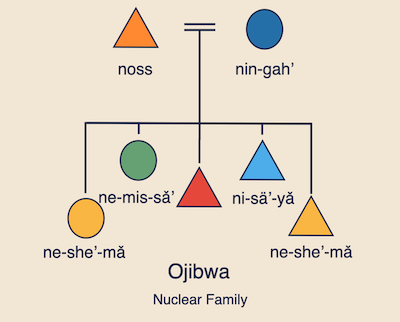The words different cultures use to describe family members have revealed some intriguing insights—including why in Balto-Slavic languages there is a complicated relationship between in-laws and weasels.
University of Bristol researchers have published a new study in PLOS ONE exploring the links between kinship names in different languages.
 Fiona Jordan, professor of anthropology from the University of Bristol, has been working with colleagues from Australia, Finland, and Brazil to develop KinBank—a catalog of more than 1,200 languages and their words for family members—known as kinship terminology. It features more than 210,000 kinship terms ranging from cousins to great-grandparents.
Fiona Jordan, professor of anthropology from the University of Bristol, has been working with colleagues from Australia, Finland, and Brazil to develop KinBank—a catalog of more than 1,200 languages and their words for family members—known as kinship terminology. It features more than 210,000 kinship terms ranging from cousins to great-grandparents.
One of the interesting findings the team have discovered is that the sounds of parental kinship terms can be predicted by the gender of the parent.
"Across the world, parent words often sound like baby babbling, with ma, ba, da sounds," Professor Jordan from Bristol's Department of Anthropology and Archaeology explains.
"We were surprised that while father words showed a bias to pa -and ta-, the ma- words could refer to either mum or dad, showing the need for large-scale databases to test these ideas about language variation."
The team are currently investigating claims that languages that distinguish certain types of cousins do so because some cousins are considered marriageable.
As KinBank grows, Professor Jordan believes it will be an invaluable tool for investigating recurring patterns for kinship terminology across cultures.
"We hope this can spark conversations about diversity and family between people from different cultural backgrounds—this is how it is in my family, but do you do it that way?" Professor Jordan said.
"Anthropologists have documented kinship variation for decades, but our database is the first time the data will be widely accessible.
You can read more in an article by the University of Bristol and published in the phys.org web site at: https://phys.org/news/2023-05-database-family-members-languages.html